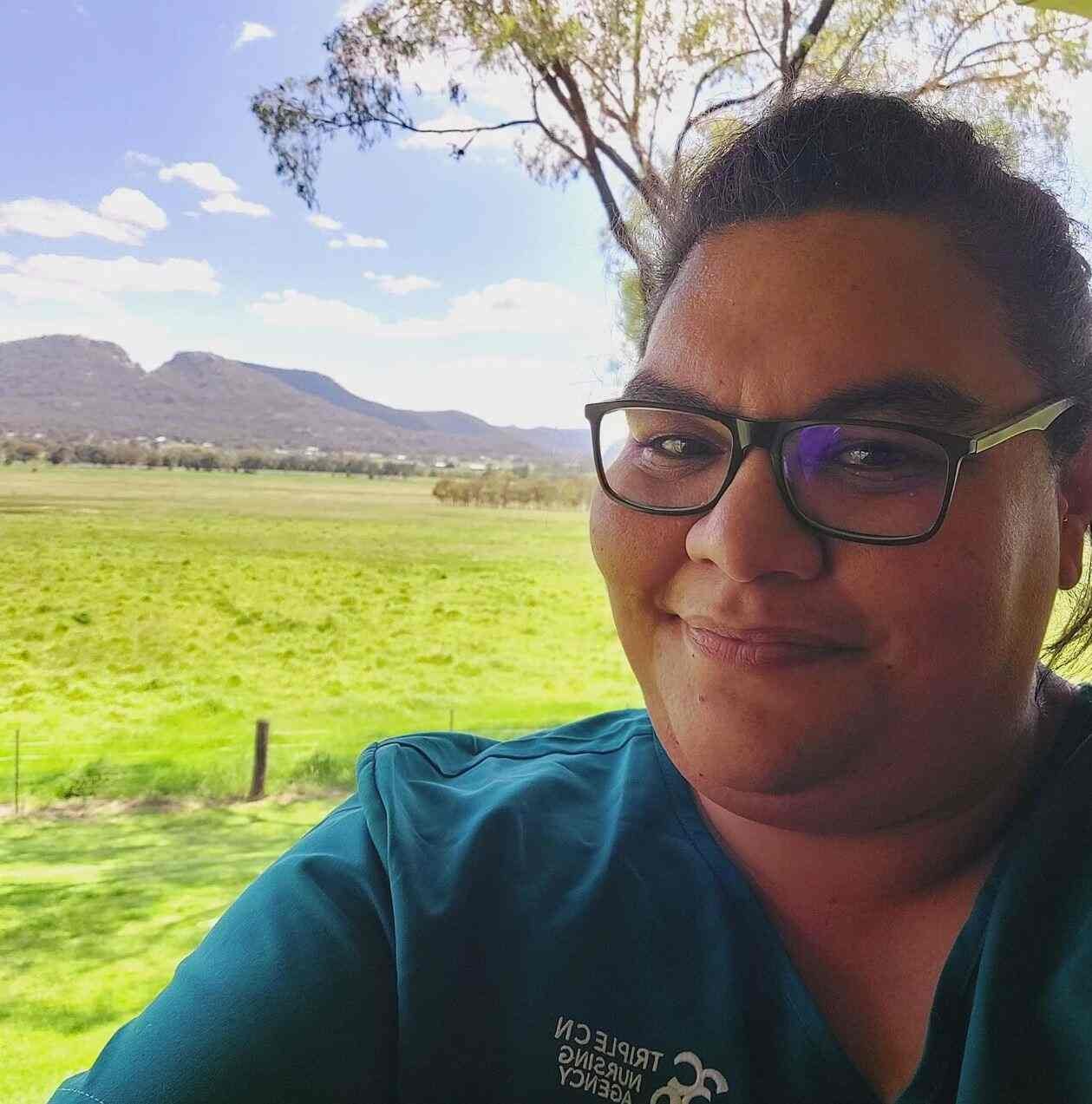Becoming a nurse is the start of an inspiring journey — in this career, your work changes and saves lives.
There are so many ways you can make an impact in your nursing career, but the road ahead isn’t always crystal clear. So, to help you see the different paths you could take, we asked nurses of all different stripes to share their stories. They show how they have progressed in their careers, and what a nursing career really looks like.
We spoke to nurses from The Nurse Break Facebook group, a great resource for aspiring nurses to ask questions and learn more about nursing careers.
What are the seniority levels in nursing?
There is a wide range of nursing jobs requiring different qualifications and levels of experience. You can decide to dip your toes into the world of nursing by becoming a nursing support and personal care worker, enrolled nurse, or mothercraft nurse. Or you could commit to university study to access more opportunities, higher salaries, and further career progression.
Getting a feel for nursing
Building your skills and knowledge
Becoming an expert
Stepping up to leadership
Getting a feel for nursing
1. Nursing support and personal care workers
Becoming a nursing support and personal care worker is an excellent entry pathway into nursing. In this role, you support the nursing staff by helping patients with showering, getting dressed, eating, getting up, mobility assistance, and following care plans — likely in conjunction with other health professionals.
You play a significant role in being a source of connection for patients, upholding their independence, and improving their quality of life. You also provide a huge help to other nursing staff — who can then focus on more complex aspects of care.
No qualification
required for this role
Qualification
Technically, no qualifications are needed for this role, but vocational training (like a Certificate III in Health Services Asisstance) may be helpful to understand the role and build confidence in your knowledge and abilities.
Salaries
Salaries start at $44,265, with a slightly higher median salary of $46,313. The most experienced workers in this industry make up to $60,255.
Hours
62% of nursing support and personal care workers work part-time, so it’s a flexible career path for those balancing family and other commitments.
Shift work is relatively common for nursing support and personal care workers, requiring irregular hours, including night and weekend work.
Is it for me?
To succeed in this role, you need patience, good listening and communication skills, and a caring attitude.
Personal care work is a great career option in its own right for caring people who’d prefer not to undertake tertiary study and who’d enjoy a flexible career.
It’s also an excellent way to gain hands-on work experience in nursing to get a sense of whether it’s right for you and a good grounding on how the medical system works. From there, you can get further qualifications, opening up more job opportunities.
Building your skills and knowledge
2. Enrolled nurse / mothercraft nurse
An enrolled nurse provides patient care but requires the clinical supervision of registered nurses. Mothercraft nurses provide care to infants and guidance to new parents on caring for their new babies. Both roles are vital in providing care for people during illness, injury, and birth.
Diploma
required for this role
Qualification
Both careers require more commitment in education and training – usually a Diploma or Advanced Diploma of Nursing, which can be taken through an accredited course provider.
Salaries
Enrolled nurses have a reported starting salary of around $60,340, with a median of $62,225. Experienced enrolled nurses can earn up to $76,713. You can expect similar salaries for mothercraft nurses as they have a similar educational background.
Hours
It’s common for workers in both fields to work part-time: only 35% of mothercraft nurses and 43% of enrolled nurses have full-time positions. As with nursing in general, though, you may be expected to work shifts, including nights and weekends.
Is it for me?
As a nurse in these fields, you need to be diligent as you care for patients per your training and nursing practice guidelines. You need to have close attention to detail to notice when a patient may need greater assistance.
You also need to cope with getting large amounts of information about different patients and drawing on your training and comprehension skills to manage them — likely with the assistance of other health professionals. Like all nurses, you also need excellent communication and listening skills and a caring attitude.
3. Registered nurse
Registered nurses provide clinical care to patients in a variety of settings and administer treatments such as medication. When you think of what a nurse is and the kinds of activities they do as part of their job, you’ll probably conjure the image of a registered nurse.
Bachelor degree
required for this role

Reremoana
Community Nurse
“I have been nursing for 13 years. I started my journey in New Zealand and moved to Australia for a new grad position. I then went into the public system and then chose agency nursing.
The flexibility is amazing, and I now have taken up a role in rural NSW as a community nurse.
I look after and manage clients with anything they need. Sometimes respite, sometimes regular work. It depends on the needs and wants of the client.”
Qualification
To become a registered nurse, you need at least a three-year nursing degree, including a placement, such as a Bachelor of Science in Nursing (BSN).
Or you could gain an equivalent. For instance, if you already have a bachelor’s degree in a different area, you could instead complete a shorter course such as the Master of Nursing (Graduate Entry).
Salaries
A starting salary for an RN is $75,875, which goes up to a median salary of $78,964. Experienced RNs can earn up to $97,235 or progress along other career pathways with higher earning potential such as becoming a nurse manager.
Hours
About half of RNs work part-time. This means that there are plenty of jobs available for people who want work/life flexibility, but also that there’s ample opportunity to benefit from full-time wages.
As with other nursing jobs, RNs must do shift work, night work, and weekend work. However, if you work in community settings such as at a general practice, you may limit your work schedule to regular office hours.
Is it for me?
RNs need the same skills other nurses do: a caring attitude, excellent communication skills, and good attention to detail. Registered nursing is a highly skilled role and may also involve taking on greater responsibility than more entry-level roles, such as overseeing the work of enrolled nurses and monitoring patients’ treatments and treatment outcomes. Learning the ins and outs of the complexities of human health and taking on those huge responsibilities with care and enthusiasm will make you a successful RN.
4. Midwife
Midwives provide health services and advice during pregnancy, labour, and the postnatal period. It’s a highly specialised career path fundamental to safely bringing new life into the world.
Bachelor + postgrad
required for this role
Qualification
As it is a specialised role, midwives require specialist training. You need a bachelor’s degree in nursing (or equivalent) and postgraduate qualifications in midwifery.
Salaries
This extra training pays off in terms of expected salary. Entry-level midwives can expect to earn $77,386, while the median reported wage is $80,525. Experienced midwives can earn up to $105,916.
Hours
About 39% of midwives work full-time, so there is an opportunity to take a flexible approach to your job. At the same time, if you’re involved in childbirth and delivery, you may be on-call to come to work at odd times whenever the babies under your care arrive!
Work hours will depend on your workplace, though. If you’re more involved in supporting new parents in the community after their baby is born, you may have more regular office hours.
Is it for me?
As a midwife, you’ll require all the same skills as registered nurses. On top of that, you need to be very knowledgeable about pregnancy, childbirth, and antenatal care. You also need to be particularly psychologically astute as childbirth is a significant event in people’s lives. Patients may feel vulnerable and worried as they struggle with feeding and sleep. They can also be at risk of postnatal depression and anxiety. Providing empathetic support and identifying warning signs is crucial for success in this role.
Becoming an expert
5. Specialising as a registered nurse
Registered nurses can choose to specialise in a range of care settings to expand their knowledge and focus on an area that interests them.
Specialisations require the completion of a Transition to Specialty Practice Program (TSPP). These are competitive – sometimes there are up to 40 applicants per position!

Joel Oldfield
Registered Nurse (Neurology/Palliative)
“I’d say it’s most rewarding being able to help people who find themselves in positions where they feel very helpless.
Also, helping the families cope with reassurance can be half the job. I never thought I would go into neurology, but I just ended up there and really like it, but I’m keen to go into other fields, too, because there are so many options.”

Alana Roberts*
Registered Nurse (Mental health)
*not her real name
“As an RN on an adolescent mental health unit, I complete a variety of tasks that include doing vital observations, bloods, spending time with patients, assessing risks, attending family sessions and consultant reviews, and attending groups (school groups, art and music therapy).
It’s so rewarding seeing the difference in patients when they’re admitted to when they’re discharged.
I did a Bachelor of Nursing and knew before starting that I wanted to work in mental health. Prior to my mental health placement occurring, I expressed an interest in adolescent mental health to my uni and was very lucky to be allocated to a placement in that area. After finishing my degree, I completed a mental health graduate nurse program and worked in adult mental health for a year. I eventually saw that a position was open for an adolescent mental health unit, applied for it and got it.”
6. Nurse manager
Nurse managers oversee the work of nurses in various healthcare settings. They supervise staff, tend to budgets, and ensure high standards of care are offered to all patients. They’re also known as nurse unit managers.
Bachelor
+ nursing experience

Wendy Smith
After-hours Coordinator
“I started as a domestic nurse, and I was swamped. So I looked at the EN, and they weren’t doing much — and I thought, “why not do that?” It was a “grass is greener” type thing — till you get there. Again, I looked at some greener grass and took on the After-hours Coordinator role, which from the outside looked pretty easy.
I have stayed in the nursing supervisor role. Most days, it’s great! And it’s a very varied role, dealing with staffing issues, patient visitors and relatives.
With COVID came its own challenges. But I am grateful for the opportunities nursing has given me.”
Qualification
Typically, nurse managers are registered nurses promoted to this high level of responsibility after years of on-the-job experience.
Salaries
The median salary for nurse managers is $116,477.
Hours
Shift work and irregular hours may be expected in some nurse manager roles. However, nurse managers are more likely than other nurses to work regular office hours. 76% of nurse managers work full-time hours.
Is it for me?
Aside from being a great nurse, as a successful nurse manager, you need a high level of organisational skill. You will be interested in mentoring their more junior staff and caring for their wellbeing alongside the wellbeing of patients. Nurse managers also need to be big-picture thinkers: you’ll understand how their unit or sub-unit works, how to make procedures as safe and efficient as possible, and delegate tasks well.

Liam Caswell
Nurse Career and Leadership Coach
“Nursing is an amazing career, whereby you can travel the world and fulfil your wildest dreams! Good luck!”
Liam’s podcast, “High Performance Nursing,” is available wherever you get your podcasts.
7. Nurse practitioner
Nurse practitioners provide more advanced care to patients. They can conduct health assessments, diagnose conditions, order diagnostic tests and imaging, and prescribe treatments.
Nurse practitioners are highly knowledgeable. They take pressure off other parts of the health system, and often offer life-changing care, particularly in settings like chronic illness management.

Madeline Anne Elizabeth
Nurse Practitioner
“I love working with an amazing multidisciplinary team to achieve safe vaccination outcomes for those who would remain unvaccinated otherwise.”

Adam McCavery
Nurse Practitioner, Lecturer, College of Nurse Practitioners State Chair.
“I started nursing after realising I didn’t want to be a doctor. I’ve travelled the world and all round Australia with it and loved all the challenges it’s brought me.”
Qualification
This is a very highly skilled profession. Nurse practitioner often hold two masters degrees. To gain entry into a masters program, you first require five years of full-time RN experience, including three in a speciality area at an advanced practice level, plus a specialist postgraduate degree.
Salaries
An entry-level salary for a newly qualified nurse practitioner is $126,477. The profession has a median salary of $128,641, and experienced nurse practitioners earn upwards of $155,000. 63% of nurse practitioners work full-time.
Hours
Nurse practitioners may work closely with GPs in community-based clinics or with specialist doctors in an overall care team. This means that there are plenty of jobs for nurse practitioners with regular office hours. However, you may find employment with on-call responsibilities or involving shift work.
Is it for me?
To succeed in this role, nurse practitioners need patience, a caring attitude, an excellent bedside manner, clear communication skills, and an ability to work with people from all walks of life. This role comes with a lot of responsibility, so it is necessary to stay up-to-date on medical information, have diligent attention to detail, and be committed to patient health and wellbeing.
Stepping up to leadership
8. Nurse educator or researcher
Nurse educators provide clinical training to other nurses, and nurse researchers study how to make nursing safer, more effective, and more evidence-based. The role offers a rewarding way of making systematic improvements in the nursing industry.
Qualification
Typically, educators and researchers will at least hold a bachelor’s degree in nursing and will likely have postgraduate qualifications such as masters degrees or even a PhD in nursing.
Salaries
Nurse educators earn a median salary of $101,490, and nursing academics (usually employed by universities or other research institutions) earn a median salary of $109,425.
Hours
59% of people in these fields hold a full-time position, while work hours tend to be standard office hours.
Is it for me?
In order to succeed in these roles, you need to be a fantastic communicator and adapt educational materials for a variety of different learning styles and educational backgrounds. Research requires curiosity and rigour – you need to be committed to expanding on collective knowledge about nursing and care.
9. Nursing clinical director/senior nurse manager
Like nurse managers, clinical directors manage other nursing staff — but at a higher organisational level. They may manage entire nursing programs or clinical services and provide key leadership as they do so.
Career progression, qualifications, skills, and work hours are similar to nurse managers. However, they will tend to have even more years of experience. 88% of nursing clinical directors work full-time. The median salary of a nursing clinical director is $143,696.
Where can nurses work?
The Australian health system offers diverse career opportunities for nurses, such as working in hospitals or clinics in metropolitan or regional areas.
Clinics
General practice
GP clinics often employ nurses to offer greater support for patients. You may be involved in administering treatments and vaccinations, managing patient health care plans, conducting diagnostic tests, triaging patients, and providing patient education. Practice nurses also tend to rate their job as highly enjoyable.
Specialist clinics
Similar to general practice nurses, except you would be working within an area of medical specialty, like cardiology, mental health, or other domains.
Cosmetic clinics
Nurses in cosmetic clinics may administer treatments such as anti-wrinkle injections and fillers or assist dermatologists or cosmetic surgeons with procedures.
Drug and alcohol clinics
Nurses in drug and alcohol clinics may be involved in providing clinical support to patients and administering some treatments, such as methadone.
Hospitals
Private hospitals
Private hospitals cover a range of specialties depending on the hospital. They also tend to be smaller than public hospitals, and these roles tend to offer more regular working hours.
Children’s hospitals
Allow you to work predominantly with kids and their families.
Women’s hospitals
Women’s hospitals exist to provide care to women and newborns, focusing on obstetrics and maternity, gynaecology, gynaecological oncology, menopause and similar specialisations.
Emergency departments
Provide urgent care for people throughout the local community for sudden injury, accidents, and illness.
Mental health nursing
Provide inpatient and outpatient care for people experiencing mental health issues. Some mental health nurses will care for patients in phases of acute crisis and distress, while others will care for people in the community as their condition stabilises, and some will provide care to both.
There are so many places a career in nursing can take you
Caring, empathetic people can make a huge difference in others’ lives in this industry. You can choose from a vast range of qualifications, healthcare settings, part-time or full-time roles, different work hours, and a huge range of specialities. A career in nursing is really what you want to make of it.



